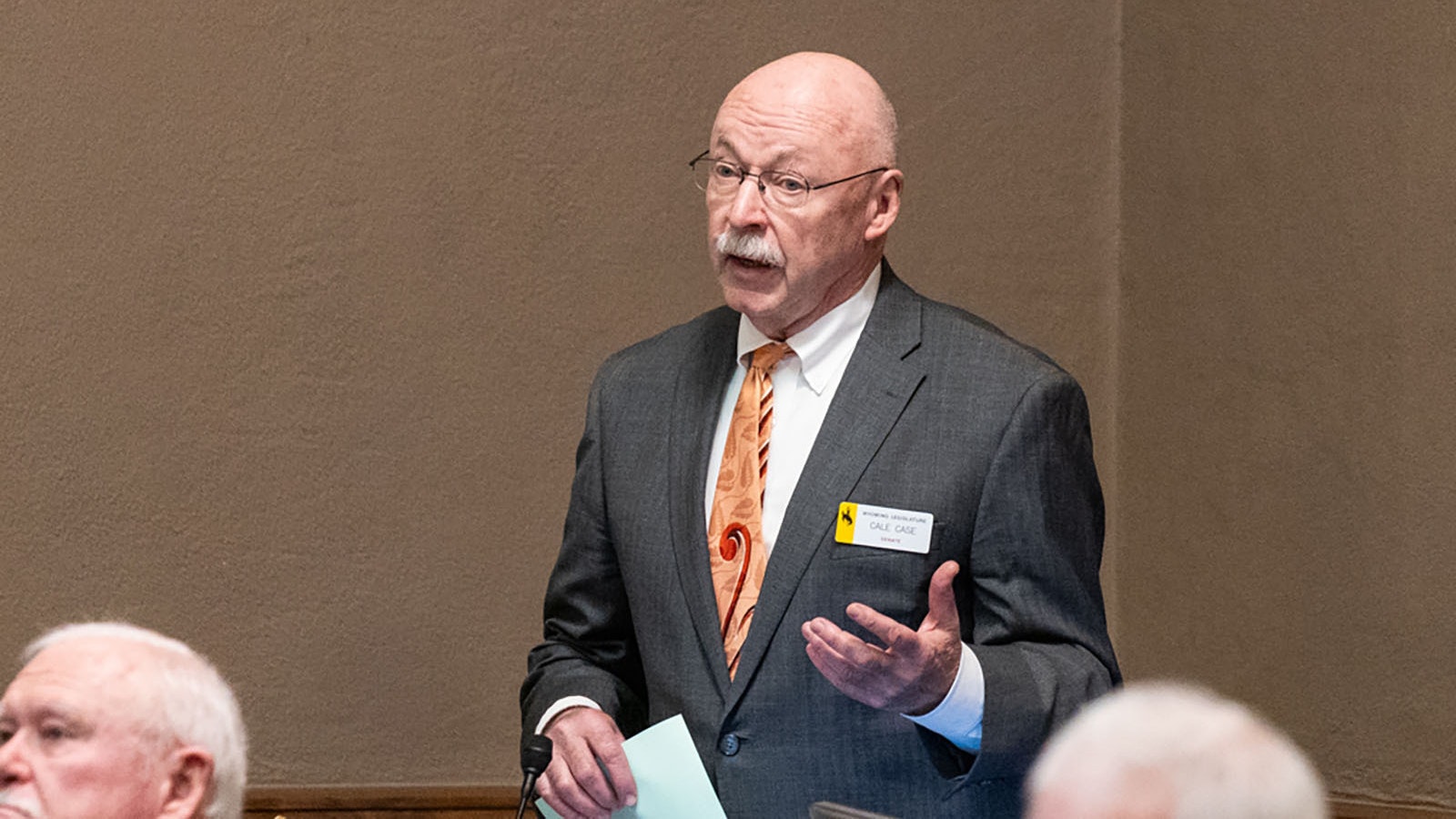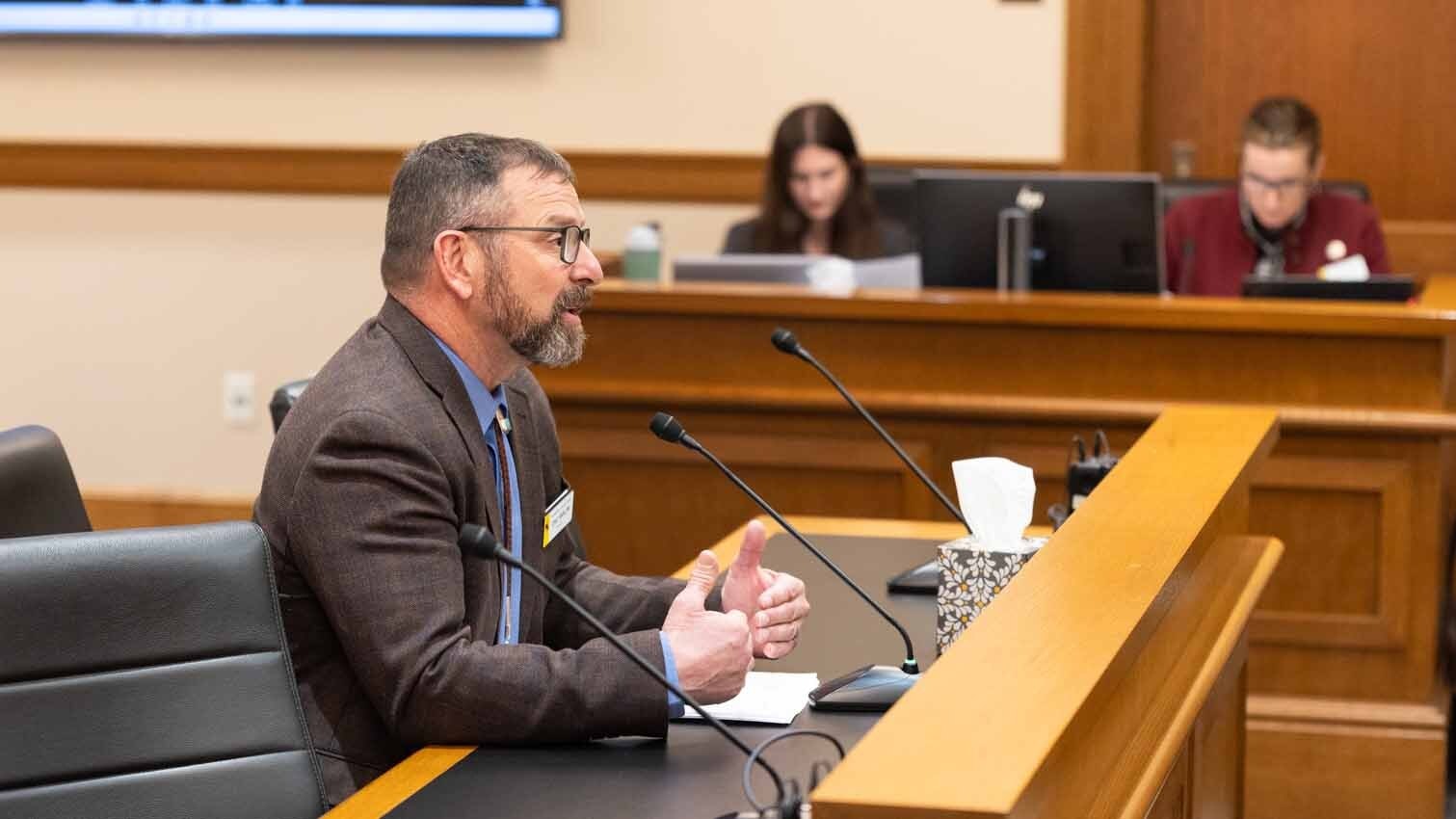Plans to move most of Wyoming’s mail processing to other states are on hold for now, after pressure from several Congressional delegations, including Wyoming’s.
Postmaster Louis DeJoy, in a letter sent to Homeland Security and Government Affairs Committee Chairman Gary Peters, D-MI, said he would agree to pause the Delivering for America plan, which outlined an ambitious consolidation of mail processing facilities across the nation until Jan. 1 of next year.
Under the plan, most of Wyoming’s mail processing would have moved from Cheyenne to Denver, while most of Casper’s mail processing would have moved to Billings.
The change would have meant that a letter sent from one Cheyenne or one Casper address to another would be sent out of state for processing before returning to their respective cities for delivery.
While that mail would still be “on time” under a two-day delivery standard, it would still have taken longer than the more usual timeframe, which has often been overnight for local mail.
In his letter, DeJoy promised not to advance the Delivering for America plans without first advising Peters and the Homeland Security Department and Government Affairs Committee, and said even then, it would be implemented “only at a moderated pace of implementation.”
Slowing Down Mail Plan
Postal Service employees who have been fighting the Delivering for America plans, and have told Cowboy State Daily the plan will mean slower delivery times.
“It’s important for Wyoming residents to understand that it will take longer to receive their mail,” NPMHU Local 321 state representative Robert Jacknitsky has told Cowboy State Daily. “This is bad news for our facility, and it’s bad news for the entire state.”
The delay is a small victory, both Ricci Roberts, branch president of the Cheyenne mail handling unit, and Jacknitsky told Cowboy State Daily.
They credited the actions of Wyoming’s congressional delegation with the win.
“Any delay, I would consider a small victory,” Jacknitsky told Cowboy State Daily in an email on Tuesday morning. “Hopefully this will give enough time for the POSTAL bill to be enacted.”
The Postal Operations Stay Timely and Local Act is a bipartisan bill introduced by Wyoming’s delegation in both the Senate and the House to block the U.S. Postal Service from removing a state’s only processing and distribution center.
“I am encouraged the U.S. Postal Service finally listened to the people of Wyoming’s concerns and halted its disastrous plans to recategorize the Cheyenne and Casper Processing and Distribution Centers,” Sen. Cynthia Lummis told Cowboy State Daily in an email.
“Folks across the Cowboy State rely on timely mail delivery for their medicine, to pay their bills and to communicate with one another," she said.
Lummis added that she hopes the U.S. Postal Service will rethink the true impact of the restructuring for rural communities.
Wyoming Secretary of State Chuck Gray told Cowboy State Daily in an email that the deal is a “good start.”
“I’m concerned that this proposal would have delayed delivery of absentee ballots, and otherwise impede the integrity of the upcoming 2024 Election and future elections,” Gray said. “The USPS delay is a positive first step. But USPS should next entirely withdraw their consolidation proposal.”
DeJoy Defends Delivering For America Plan
In his letter to Peters, DeJoy acknowledged widespread concerns about the Delivering for America plan, but said the plans are “not at all consequential to service.”
“Rather they are important elements of achieving a network that can provide greater service reliability in a cost-effective manner,” he wrote.
The plan will not cause layoffs for “career workforce,” DeJoy wrote, facilities will not close, new equipment will be installed, deferred maintenance performed, and overall working conditions substantially improved.
“I acknowledge that we have not been able to convince Congress of this, even though these efforts will both improve the facilities and facilitate the significant cost reductions that we absolutely must achieve to have any hope of financial stability,” DeJoy wrote.
DeJoy blamed what he characterized as “misconceptions” of his plan on a time when the post office closed “these types of facilities as part of a decidedly different strategy” as well as confusion over “current service issues we are experiencing.”
DeJoy also wrote that he would continue to consider whether he should seek an advisory opinion from the Postal Regulatory Commission, as a “discretionary matter on our part, consistent with (federal statutes), taking into account the relevant legal requirements.”
Worst Service in History
In fact, late last April, the Postal Regulatory Commission ordered the Postal Service to explain why it has not requested an advisory opinion on certain aspects of the Delivering for America Plan.
That order noted a “correlation between Delivering for America network changes and service problems” in areas that have implemented the changes, including Atlanta, Houston, and Richmond, VA.
“As the commission issues this show cause order, we don’t have firm proof of what is causing the recent decline in service performance,” PRC Chairman Michael Kubayanda wrote.
“I think the American public, postal stakeholders, and Congress want to understand the impact of the Postal Service’s network transformation plans," he wrote. "They want to know what is happening to mail service, how to stop this decline, how to keep it from spreading, and how to restore service to targeted levels of performance.”
The order followed Kubayanda’s Capitol Hill testimony about the U.S. Postal Service’s lackluster performance in 2023, and suggested that the problems are linked to the Delivering for American Plan.
A graphic included with his testimony showed a dramatic drop in on-time deliveries in the Atlanta metro area starting at the end of February. By March 15, only 10% of mail was being delivered on time, compared to the previous, more usual stat of 92% on time.
“Atlanta, and Richmond, Virginia are home of new regional processing plants deployed under the March 2021 Delivering for America DFA plan,” Kubayanda testified. “Hopefully poor service in Atlanta is an extreme outlier and will rebound soon. But national performance has been subpar and trending in the wrong direction.”
The Postal Service’s own metric of efficiency, called Total Factor Productivity, or TFP, showed a decline of 4% in its annual report to Congress in 2023, Kubayanda added. That figure, if verified, is the largest annual drop in the history of the postal service.
The service also continues to lose money, Kubayanda testified, despite being given almost $100 billion more in funding from Congress and the PRC, through a reduction in retiree health benefits payments and increased revenue from new pricing authority.
Renée Jean can be reached at renee@cowboystatedaily.com.





